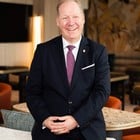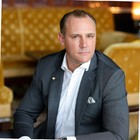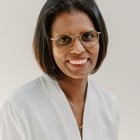The Defining Skill of Today’s Luxury Hotel GM
21 experts shared their view
The role of the luxury hotel General Manager has never been more complex. Balancing operational excellence with brand storytelling, financial discipline with guest-centric innovation, and technology adoption with human connection, today's GM must navigate an industry in rapid transformation.
As highlighted in EHL's article "How to Become a Great Hotel Manager in 5 Steps", successful leaders are expected to master a wide variety of skills. While we fully recognize this reality, for this viewpoint we want to distill it down to the single most important factor that drives success.
That is why Hospitality Net asks you, as a GM: What do you believe is the one decisive skill that truly separates outstanding luxury hotel GMs from the rest — and why?
The decisive skill I feel separates a great GM is "managing the balanced scorecard" - enlivening employee engagement, amplifying the guest experience, and ensuring financial stability.
Too often, the General Manager confuses what is truly important and relevant to the hospitality business. If you are spending 90% of your time on 10% of situations that don't positively impact one of the key drivers, then you need to take a step back and use your resources to adjust your approach so you achieve success and get things done.
This will ultimately support what truly matters, which usually comes from listening to the people who perform the day-to-day job tasks. Once you are able to master the art of engaging with team members, they feel valued and want to contribute to the business. To summarize, their success is our success!
For me, the role of a luxury hotel GM is first and foremost that of a balancing act. Depending on the context, whether corporate or private ownership, the GM must be able to adapt and understand stakeholders' expectations. They must be able to deal with ambiguity and create added value. A GM is expected to master operational excellence, maintain financial discipline, drive guest-centric innovation, and embrace technology without losing the essence of human connection.
Yet amid this growing complexity, one decisive factor truly separates good GMs from great ones: the ability to develop and retain teams. In our industry, where the guest experience is built upon authenticity and emotion, nothing can be achieved without engaged, motivated employees who feel proud to contribute to the hotel's success.
An outstanding GM knows how to attract and retain talent, strengthen the employer reputation, and create an environment where people can thrive and deliver their very best.
Ultimately, it is the ability to foster a strong, cohesive culture that ensures consistency in brand promise, drives long-term value, and makes guest experiences genuinely memorable.
Strategic foresight distinguishes outstanding luxury hotel general managers from their peers.
Empathy empowers a general manager (GM) to understand and anticipate the diverse needs of guests, staff, owners, and partners. In luxury hospitality, emotional connections are crucial; guests often remember how they felt during their stay far more than the details of their accommodations. A GM who champions empathy inspires their team and builds trust with stakeholders, fostering the buy-in necessary for everyone to work together toward the hotel's strategic vision.
At the same time, strategic foresight enables the GM to rise above daily operations and position the hotel for long-term success. In a competitive landscape marked by narrow profit margins, rapid technological change, increasing sustainability demands, and evolving guest expectations, this foresight must be innovative. It should harmoniously integrate the hotel's location and culture, creating unique experiences that resonate with guests.
When empathy brings teams together and foresight paves the way for the future, the result is a motivated workforce, unforgettable guest experiences, sustainable financial health, and a hotel that authentically represents its place and culture.
The defining skill of a luxury hotel General Manager today is the ability to create alignment.
The modern GM must do more than ensure flawless operations or protect financial results. It is about bringing people, purpose, and performance together under a shared vision.
When alignment exists, colleagues understand the "why" behind their work, owners see consistency in strategy, and guests experience service that feels authentic and intuitive.
In practice, this means listening as much as leading, translating strategy into daily action, and inspiring trust that every decision connects back to the hotel's story. Alignment enables resilience when the industry shifts and turns complexity into clarity.
In the end, trust is the essence of true luxury, and alignment is the skill that makes it possible.
The hospitality environment is dynamic and often unpredictable, requiring leaders to handle a wide range of challenges, whether it's adjusting to changing guest expectations, managing a diverse team, or responding to unforeseen circumstances.
We are in a fortunate business with significant growth potential, but this growth will depend on the people who bring it to life. One important aspect that sets today apart from the past is humility.
Cultivating a growth mindset is essential for adaptability. This resilience not only strengthens leadership abilities but also fosters a positive, proactive culture within the team. Celebrating the WOW moments, learning from guest incidents, and acting on team feedback are all critical for success.
Ultimately, adaptability allows GMs to stay ahead in a competitive landscape and deliver exceptional service consistently. Whether it’s a new hire on their first day or a colleague with 30 years of experience, equipping team members with the knowledge and tools they need to succeed is a must.
Finally, effective management of stakeholders (including guests, colleagues, and ownership) is essential. Balancing their interests requires sound business acumen, a touch of audacity in risk-taking, and the confidence to trust your instincts. This approach helps ensure the best decisions are made for a prosperous future for the industry.
Related article by Franck Droin
In an ever-evolving world of technological advancement, the one decisive factor in today's luxury hospitality is the human being.
The General Manager's ability to define the property's culture through role-model behavior and by hiring the right team (ideal in a pre-opening environment, more challenging in an operational one) sets the gold standard of success.
It is important to listen, guide, motivate, encourage, and occasionally remind or reprimand to ensure the team is aligned. Creating a close-knit bond within the team, with a focus on guest service excellence, is the decisive factor and differentiator in a world where technology threatens to replace human labor.
In a luxury environment, technological advancement is desirable but will never substitute for the empathetic human touch. Emotional intelligence and EQ are, in my opinion, the decisive skills that truly separate outstanding GMs from the rest.
In my view, the one decisive skill that truly separates outstanding luxury hotel General Managers from the rest is emotional intelligence - the ability to lead with empathy, read the gravity of the moment, and make people feel heard and seen, whether they are guests, team members, or partners. In luxury hospitality, details matter but it’s how you make people feel that stays with them long after the interaction.
A General Manager with strong emotional intelligence can navigate complexity with calm, resolve conflicts without ego, and build cultures where hospitality is not a process but a mindset. When your team feels valued and inspired, that translates into authentic, elevated experiences for guests; and in the complex luxury space today, that emotional connection is everything.
An almost obsessive hyper-fixation on details in the world of luxury hospitality is necessary. The ability to notice, take action, and create a collection of touches which form an atmosphere of perfection. Not only does this build a culture of meticulous attention, precision across all teams, and the highest operational standards, but it elevates the property beyond service into an art form.
This attention cascades to the staff, cultivating an environment where everyone takes pride in precision and consistency, ensuring the entire operation reflects uncompromising excellence. It catches small inefficiencies and potential risks before they escalate, protecting revenue streams and the integrity of the asset. In luxury hospitality, financial health is inseparable from its reputation, and reputation is built on flawless execution in all fields.
High repeat guest ratios, glowing reviews, and a polished product all translate into stronger ADR, solid occupancies, reduced turnover, and robust profitability. From an owner's perspective, a GM who relentlessly ensures that no detail slips is not only protecting the brand image but also safeguarding the asset's long-term value and competitive advantage. The GM in that case demonstrates stewardship that maximizes both short-term returns and long-term appreciation of the property as a luxury investment.
The defining skill of today’s luxury hotel GM is adaptive leadership. Luxury hospitality sits at the crossroads of shifting guest expectations, evolving owner demands, and constant technological change. A GM who cannot adapt risks irrelevance; a GM who thrives is one who can read the moment and pivot with clarity and composure.
At Nihi Sumba, Grace Santorini Auberge, and Malliouhana Auberge, I learned that operational excellence and financial mastery are non-negotiable foundations. Yet what separated success from stagnation was agility - the ability to shift focus seamlessly from commercial strategy to human connection, from navigating owner priorities to inspiring a team, from analyzing KPIs to addressing a guest’s unspoken need.
Adaptive leadership is not reactive; it is anticipatory. It demands emotional intelligence, financial discipline, and narrative vision, all synthesized into decisive action. It allows GMs to safeguard brand integrity while embracing innovation, to deliver profitability without losing authenticity, and to keep teams resilient in moments of uncertainty.
The industry is moving faster than ever. Adaptive leaders are the ones who won’t just keep pace - they will define what luxury hospitality means in the years ahead.
The most decisive skill that distinguishes outstanding luxury hotel General Managers is the entrepreneurial spirit. In this role, a GM is not only responsible for the day-to-day operations of the hotel but also tasked with driving its growth and development. This requires a keen awareness of constantly changing market trends and the ability to generate innovative ideas that enhance the property’s offerings.
In today’s competitive landscape, identifying new revenue streams is essential to meet the financial and quality expectations of all stakeholders. An effective luxury hotel GM must possess the foresight to analyze market shifts, develop strategic plans grounded in solid data and rationale, and execute these initiatives effectively.
Being a pioneer in the industry often garners significant attention and can set a property apart from its competitors. Embracing the courage to explore new concepts and approaches can lead to remarkable successes or, at the very least, provide invaluable lessons for future endeavors. Ultimately, this entrepreneurial mindset enables GMs to navigate challenges and capitalize on opportunities, ensuring sustained excellence in luxury hospitality.
The one skill that truly separates an outstanding luxury hotel GM is emotional intelligence. Strategy, budgets, and operations matter, but they are not what guests and teams remember.
What defines outstanding leadership is the ability to sense needs, respond with empathy, and create moments that feel deeply personal. I have seen how the smallest gestures leave the strongest memories. A honeymoon couple arriving after a long flight does not want a formal process. Guiding them quickly to their room with something refreshing to drink, and later surprising them with a handwritten note, creates an experience they will never forget.
The same is true in dining. When a guest hesitates over the menu, stepping in with a warm suggestion removes uncertainty and turns the evening into delight.
With the team, emotional intelligence means noticing when someone is under pressure and stepping in with encouragement or support before it affects service.
These actions build trust, loyalty, and a culture of care. Emotional intelligence is not soft. It is what allows a GM to inspire teams, balance expectations, and create connections that turn service into stories. This is the real marker of outstanding luxury hotel leadership.
In luxury hospitality, the true mark of an outstanding General Manager lies not only in operational excellence but in leading with imagination, empathy, and purpose. Today's guests no longer equate luxury solely with opulence; they seek experiences that are authentic, personal, and meaningful.
This journey begins with people. A guest's stay becomes unforgettable when we listen carefully to what matters most to them and bring it to life with sincerity. Equally, when I take the time to hear my team, value their ideas, and empower them to act, passion transforms into performance. A supported team naturally delivers exceptional service, and their creativity often sparks the moments that guests remember most is a thoughtful gesture, a tailored surprise, or a solution that turns a challenge into delight.
The role of today's GM is to balance discipline with empathy, financial performance with human connection, and innovation with the timeless heart of hospitality. When imagination, empathy, and purpose converge, service becomes more than excellent, it becomes truly unforgettable.
We all know that being the General Manager of any hotel, luxury or otherwise, requires a broader set of skills and abilities than many other jobs. Operating a people-based, high-capital requirement, 24/7 business - where one minute you are deciding pricing for 18 months in advance and the next choosing the colour of plates - is not how most people think of a hotel leader's role.
However, looking just at luxury hotels, the GM needs even more than breadth of skills, leadership qualities, and emotional intelligence. One additional skill stands out: creativity.
General Managers of luxury hotels must be creative, innovating to create the essence of what luxury hotel guests seek - experiences. A GM examines the guest journey from the dreaming stage right through to post-departure, always through the lens of "experience". In a world where hospitality is increasingly commoditized, fewer hotels succeed at telling stories and creating personalized moments. Yet it is exactly this ability to forge genuine connections that can leave a guest with a transformative memory for life.
Among the many responsibilities of a luxury hotel general manager, one skill stands above all: the ability to attract, develop, and retain exceptional talent. As the industry evolves, three forces are reshaping how leaders must approach this challenge.
First, talent is the foundation of guest experience. Luxury travelers seek authentic, memorable encounters, and while location and design matter, it is employees who make a stay unforgettable. GMs must inspire and train teams to deliver intuitive, personalized service, creating a culture where staff feel empowered to craft unique moments.
Second, the international labor pool is shrinking due to demographic decline and tighter immigration policies. Hotels can no longer depend on a steady flow of international workers. Building local pipelines through training and apprenticeships is now essential, fostering loyalty and cultural authenticity.
Finally, artificial intelligence (AI) is transforming how talent is supported. By streamlining scheduling, training, and guest insights, AI can deliver efficiency gains of 20–30%. Crucially, these tools free staff to focus more time on what matters most: face-to-face service and genuine human connection.
In luxury hospitality, talent leadership is the true mark of exceptional general managers.
While financial acumen, operational expertise, and brand alignment are all critical, it is emotional intelligence that allows a GM to connect authentically with both guests and teams. Luxury hospitality is ultimately about creating feelings—of trust, belonging, inspiration, and care. A GM with high emotional intelligence can read the unspoken needs of a guest, sense the pulse of their team, and adapt leadership style to bring out the best in people.
This skill becomes even more decisive in times of disruption or transformation, when uncertainty is high. Emotional intelligence enables GMs to remain empathetic yet decisive, to inspire confidence while navigating complexity, and to sustain a culture where excellence feels natural rather than imposed.
In luxury, where details matter and experiences are deeply personal, it is this ability to lead with emotional intelligence that transforms good management into exceptional leadership.
It is said the change is the only constant in life. True, this has always been the case. But in a last-minute instant world, where image is crucial, the need to respond to the perceived increase to the pace of change feels greater.
This is where the key quality of the luxury GM comes in. The considered and determined strategist. The one, who knits the operation together, secure in operational experience; the one with the plan, who offers the determined leadership for the longer term, building reputational brand; the one, who's able to spot the right business and technological opportunities, which will make a difference to their guests' experience; and the one, who is able to communicate a strategy and discipline, which gives a team the true sense of culture and security.
Housekeeping, food & beverage, wellness, golf and goodness knows what other services are provided in hotels and resorts across the world are complex, often quite unrelated. They need the knowledgeable communicative strategist to ensure that these seemingly very different mini-businesses, operating in one site, offer a uniform level of service, quality and business performance.
The simple truth is that the most important element in any luxury property is its people. You can have the most beautiful, architectural, and innovative property on the planet, but without the right culture and the right team, you have nothing.
If a hotel were empty of staff, it would not be a hotel or resort. As General Managers, we are the “generalists,” and our focus must be on building up our people and providing the right training. In my view, fostering leadership is by far the most important part of being both a hotelier and a good leader.
It’s a complex question, and what makes it even harder is trying to answer it with just one skill. For me, the most important skill is the ability to read people and stay flexible in the day-to-day routine.
Today, there are no set rules, no standard decisions, and no situation that ever looks exactly the same. You have to adapt and truly understand both your guests and your staff in order to find the right formula.
A hotel general manager is like the conductor in an orchestra. Everything in the hotel is moving - the team, the business side, guests coming and going - and the GM is the one who brings it all together.
At the heart of the role are three essential elements: Team Performance, Business Profitability, and Guest Satisfaction.
Every leader brings their own flair depending on background and culture, but one trait sets great GMs apart: the ability to see and pursue the long-term purpose of the business.My favourite general manager traits combine:
- Excellent communicator: Effective GMs communicates with clarity, adapt to different audiences, regarless of the communication mean (Spoken, email, casual chats)
- Natural (or developed) leader: Authority matters, but so does empathy. Not everyone leads the same way, but great GMs combine influence with care. Find your leadership style and be confortable in your own skin.
- Organization: The ability to cut through, delegate, and keep teams moving in the right direction.
- Adaptability: No two hotels are alike, so a top GM navigates changes, industry cycles, and the unexpected.
- Commitment to continuous improvement: Great GMs seek out feedback, learn from their teams and guests every day, and never stop sharpening their axe.
The one decisive skill that truly sets an outstanding luxury hotel General Manager apart is the ability to build and sustain trust across every relationship. A hotel is an ecosystem of guests, owners, staff, and partners, and long-term success depends on the confidence of each group in the leadership. Great GMs understand that trust is not commanded but earned through transparency, fairness, and consistency.
Owners look for a GM who can safeguard investment while upholding brand reputation. Staff commit fully when they feel respected and supported by their leader. Suppliers and partners give their best when they know collaboration is built on reliability.
In times of challenge, trust is what steadies the team and reassures stakeholders that the hotel will endure and adapt. What separates the good from the great is this ability to nurture relationships with integrity, turning professional connections into lasting partnerships.
For a GM, trust becomes the quiet strength that sustains both excellence in service and resilience in operations.
Being Hands-On: The days when a GM sat in a high office and stayed away from the floor are over. Today’s GM needs to be close to both guests and teams, leading from the front and staying connected to what really happens in the hotel.
Being a Connected Leader: A GM today must empower the team, encourage collaboration, and open up the decision-making process. When people feel included and trusted, they take more ownership, and that brings the GM closer to both the team and the guest experience.
Experience Creator: Luxury hotels are not just about a room anymore. They are about creating travel experiences that go beyond the hotel walls. Guests are looking for something authentic and memorable, and it’s the GM’s job to make sure that happens.
Empathy and Emotional Intelligence: Luxury is more than polished marble and fine details—it’s about understanding people. A good GM can connect with both guests and staff, picking up on feelings and emotions, and making sure service feels human and personal.
Tech-Savvy: The GM of today cannot avoid technology. It’s not about being an IT expert, but about being open to using tech to improve the guest journey and make operations smoother. Ignoring tech is no longer an option.






















